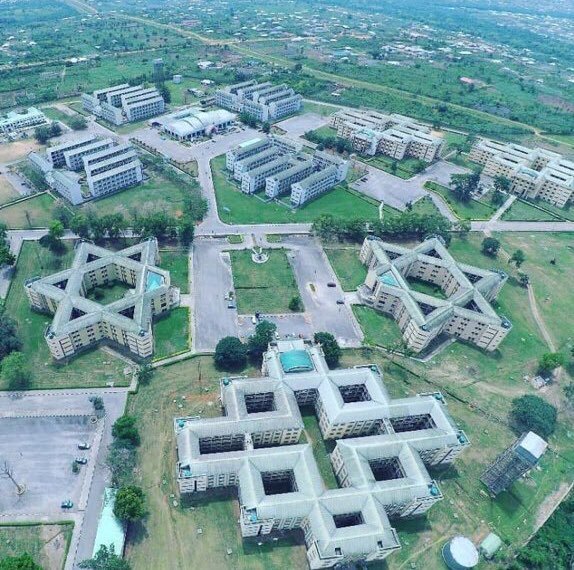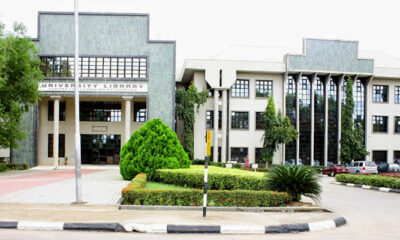Education
The Church, Character And University Education
By Etim Etim

I attended the 18th convocation ceremony of Covenant University last Friday. In all, 1, 175 graduates received Bachelor’s degree and 204 got Master’s and Ph.Ds. My son, Emmanuel, graduated top of the class in mechanical engineering.
It was the first graduation event that I have attended in decades, and I really looked forward to it. The event was well planned to every detail, commenced and ended on time, lasting just about three hours. There were no government officials to wait for. Such delays irritate me. NUC and other organizations were well represented; parents and relations of the graduating students turned up in their colours. The logistics arrangement was also flawless.
Our private universities have come a long way after the initial public skepticism and they now play significant roles in our tertiary education development. Every year, over two million Nigerians seek admission into tertiary institutions, and due to the inability of government-owned universities to cope with the increasing applications for admissions, the federal government had in 1993 enacted Decree 9 to set strict guidelines for the establishment of private universities.
The guidelines entail a 14-step process, starting with the submission of application and culminating in approval by the Federal Executive Council. But it was not until 1999 that Babcock University, Ilishan, Ogun State; Igbinedion University, Okada, Edo State and Madonna University, Okija, Anambra State, were licensed as the pioneer universities in the country.
CU came in 2002 and has recorded commendable accomplishments in the last 21 years. Its Vice Chancellor, Prof Abiodun Adebayo announced that in the 2023 Times Higher Education World University and Impact Rankings, Covenant was rated first in Nigeria, first in West Africa and 7th in Africa. It has also won many other awards. CU owes its growth and attainments to good management and its rich sources of funding, which ensure adequate facilities, infrastructures and faculty. It is owned by Bishop David Oyedepo, who owns Living Faith Church, also known as Winners Chapel, one of the riches churches in Africa.
The church provides adequate funding and the moral and spiritual undertone to the university. Bishop Oyedepo serves as the provost of the university and Chairman of the Board of Regents, which I presume, is its governing board. CU one of the few faith-based universities in the country, providing sound education and character-building teachings to our children in disciplined and conducive environments. Others are Redeemers University, owned by RCCG and Babcock University, owned by the Seventh-day Adventist Church.
These churches augment the resources of the universities and this helps in moderating the fees they charge. I am grateful to the management of CU for providing such a high-quality learning environment at modest costs to children from of ordinary families. Emmanuel entered CU as a little, shy 17-year-old in 2018, and came out as a mature, confident, well cultivated, self-assured, well behaved, well-spoken and brilliant eagle, as they call their graduates. Throughout the five years, he did not miss a class for a single day, not even for ASUU strike, which assisted in killing the public universities; and there’s never been a single day of electricity outage or water scarcity in the campus. The university generates its own electricity and produces its water supply.
As a young boy, I attended a faith-based secondary school, Lutheran High School, owned by Lutheran Church of Nigeria. Lutheran Church was founded by the German theologian, professor, pastor and church reformer, Martin Luther (1483-1546), after he was excommunicated from the Catholic Church for his radical teachings. My school was established in 1925, one of the first set of secondary schools founded by the missionaries in what is now Akwa Ibom State.
Hundreds of other schools across the country origin to the early missionaries and the church. Today, it is customary for many churches and church branches to establish at least a kindergarten school, either in their premises or elsewhere in the same town or village. The roles of the early Christian missionaries and the Christian faith as a whole in the promotion of education is in this country is huge and commendable.
Private universities provide good alternatives to the crisis-ridden public institutions, adding to the available opportunities in highly demanded courses like engineering, medicine, architecture, law, computer science and ICT.
Given their comparatively low enrolment figures and staff-student ratio, in addition to the culture of discipline, private universities deliver better teaching and research experience in a more competitive and conducive learning environment, the reason graduates of these institutions do very well in postgraduate studies, with some winning lucrative scholarships. Even employers find them more employable.
Just as Emmanuel was rounding off his degree exams, recruiters swamped the campus and interviewed some students. He was hired immediately after by an engineering project management firm. Private universities also help to stem the tide of capital flight as parents who would have sent their kids abroad now have good alternatives at home.
It was private universities that introduced entrepreneurship studies into university curriculum in this country. I like the emphasize that faith-based universities place on values, character and morality in their curriculum. CU has a course known as Total Man Concept which teaches everything that builds a wholesome character. Bishop Oyedepo meets with his students regularly to teach ethics, morality and values. In the evening of the convocation day, he met with the graduates for the last time. It is the absence of these values from the fabrics of our society that has rendered Nigeria comatose today. We have become a country whose leaders are morally and ethically deficient. ‘’We cannot make progress if we do not acknowledge that when character is lost all is lost’’, writes Prof. Pat Utomi in a recent essay.
According to Prof Ayodeji Olukoju, former VC of Caleb university, Lagos, private universities are national assets that do not belong exclusively to their owners. ‘’Their counterparts in the leading countries of the world enjoy respect and occupy a pride of place in the comity of universities. Private universities have contributed to deepening and broadening the pool of human capital in Nigeria’’. There are 260 universities in Nigeria.
In June, the NUC announced the approval of 37 new private universities by the federal government. Among them is Wigwe University, founded by one of the nation’s most accomplished and respected bankers, Herbert Wigwe. I understand that the plan is to make it the best in the continent, and one of the very best in the world. knowing Herbert as I do, I am convinced that he will pursue this dream with all his might.
Next month, I will be reporting from the convocation grounds of another university, from where another son of man has just graduated, also top of class, but this time, in civil engineering.
Send Us A Press Statement Advertise With Us Contact Us
And For More Nigerian News Visit GWG.NG










